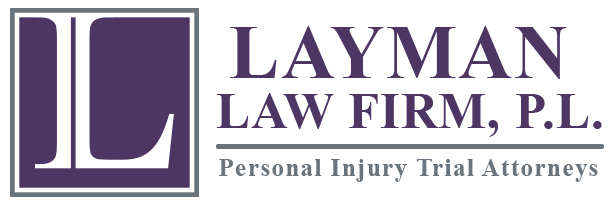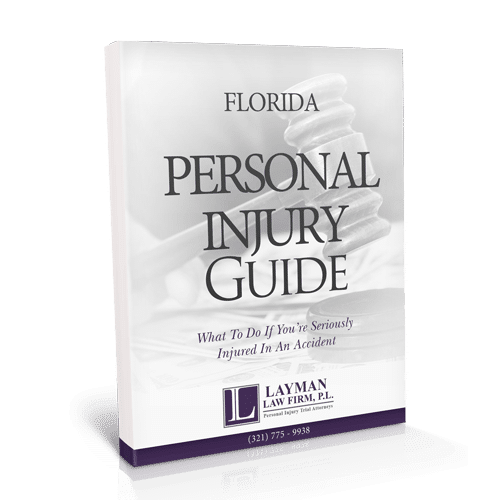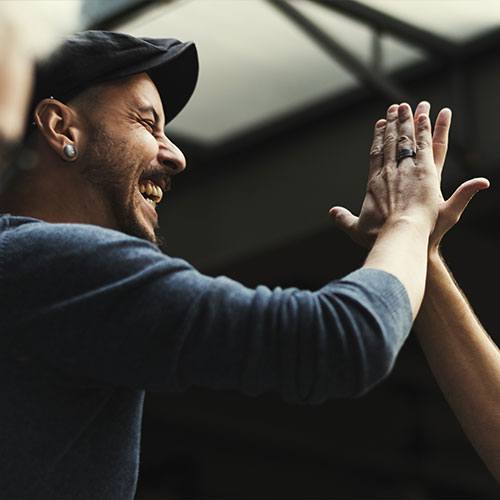Melbourne Injuries from Livestock Lawyer
People who do not live in the state tend to envision amusement parks, beaches, and citrus groves when they think of Florida. While all those things can be found in Florida, the state is also home to millions of acres of agricultural land, horse farms, and rural homesteads. In fact, you need not travel far from the state’s famous beaches and amusement parks to find yourself surrounded by endless miles of potentially dangerous livestock.
If you or a family member were injured in a Melbourne livestock accident, you are undoubtedly focused on treating your injuries or working through your grief in the case of a fatal accident. You may not even realize that the owner of the animal is potentially liable for your injuries or loss. The experienced Melbourne injuries from livestock lawyers at Layman Law Firm, P.L. are committed to helping you and your family. Allow us to put our extensive experience and substantial resources to work for you and your family. We are committed to ensuring that the party (or parties) responsible for your injuries is held accountable and that you are justly compensated for the physical injuries, emotional trauma, and financial hardship you have suffered.
How Do Livestock Accidents Occur?
Large, potentially dangerous animals are surprisingly common in the State of Florida. While some of these are wild animals, many are not. There are over 600 horse farms and training facilities along with thousands of other privately owned horses. Florida also ranks 12th in the nation for beef production with close to a million head of cattle, according to the United States Department of Agriculture (USDA). Add in sheep, llamas, goats, and a variety of other livestock and it is not surprising that livestock injuries do occur more often than most people realize.
An average adult cow weighs around 2,000 pounds while the average horse weighs half of that. Sheep, goats, and other livestock tend to weigh in at 100 to 300 pounds. Making these animals even more dangerous is the fact that most of them are herd animals. Not only do they tend to graze together, but if one of them feels threatened or gets spooked, it usually sets off a chain reaction involving all of them, adding to the potential injuries a victim may suffer in a livestock accident. Among the most common ways in which a livestock accident may occur are:
- Motor vehicle collisions
- Trampling by livestock
- Kicks and bites
- Goring by horned livestock
- Charging
What Are Some Common Livestock Accident Injuries?
Given the size and weight of ordinary livestock, coupled with the number of animals typically involved, livestock injuries are often serious, even fatal, for a victim. Examples of livestock injuries include:
- Traumatic brain injury (TBI)
- Spinal injuries, including paralysis
- Internal organ damage
- Broken bones
- Contusions and lacerations
- Death
When Is a Livestock Owner Liable for Injuries?
When an innocent bystander is injured by livestock, it typically involves animals that have strayed off the owner’s property. Because of Florida’s long history as an agricultural state, Florida was one of the last states to enact legislation protecting the public from livestock injuries. Until the middle of the 20th century, Florida was an “open range” state. As such, a motorist who was involved in a collision with livestock might be responsible for paying the owner of the livestock for injuries to, or the loss of, the animal.
Today, most livestock owners have fencing or other containment systems in place to prevent this from happening; however, Florida law does not directly impose a duty to erect a fence on the owner of livestock, Fisel v. Wynns, 667 So.2d 761, 762 (Fla. 1996). On the other hand, Florida Statute 588.15 does make it clear that the owner of livestock may be held legally liable for injuries, including damages to personal property, if the owner “intentionally, willfully, carelessly, or negligently suffers or permits such livestock to run at large upon or stray upon the public roads of this state.”
For the purpose of the statute, “livestock” is defined as “all animals of the equine, bovine, or swine class, including goats, sheep, mules, horses, hogs, cattle, ostriches, and other grazing animals.” In addition, the law defines “running at large” or “straying” as “any livestock found or being on any public land, or land belonging to a person other than the owner of the livestock, without the landowner’s permission, and posing a threat to public safety.”
What Should I Do After a Melbourne Livestock Injury Accident?
Being injured in a livestock accident can be an emotionally traumatizing event, especially if serious injuries are involved. Knowing what to do in the days and weeks following an accident can be the key to a full recovery, both physically and financially. With that in mind, you should take the following steps if you were involved in a Melbourne livestock injury accident:
- Get to a hospital immediately for an evaluation. Many livestock accidents are serious enough that transportation to the hospital is not an option; however, even if your injuries appear minor, you should submit to a thorough medical examination as soon after the accident as possible. Not only will this identify any potentially life-threatening hidden injuries (such as internal bleeding or a TBI) but it will also help establish a nexus between your injuries and the cause of those injuries.
- Document the accident. If you can do so, take pictures of the animal(s) and the scene before you are transported to the hospital. If there is a gate left open or a broken fence that may have allowed the animal(s) to escape, be sure to get a photo of that area. If the landowner shows up at the scene, get his/her name and contact information; however, do not discuss the accident further.
- Do not speak to an insurance adjuster. If the livestock owner’s negligence caused or contributed to your injuries, the owner may be legally liable for your injuries. That means you may be contacted by the owner’s insurance company shortly after the accident. Do not agree to speak to the adjuster before you have consulted with a Melbourne livestock injuries lawyer. Remember, the insurance adjuster’s job is to get injured victims to settle for as little as possible.
Am I Entitled to Compensation for My Melbourne Livestock Accident Injuries?
When the negligent conduct of another party causes or contributes to an accident, that party may be legally responsible for compensating the injured victim for both economic and non-economic damages. Economic damages are objective and easily quantified and include things such as:
- Medical expenses, including doctor, hospital, and therapist expenses
- Rehabilitation, in-home care, and long-term care costs
- Lost income or loss of earning capacity
- Specialized medical equipment
Non-economic damages are subjective and not easily quantified and include things such as:
- Pain and suffering
- Emotional distress
- Loss of enjoyment of life
- Disfigurement
- Mental anguish
- Loss of consortium
If you are the surviving spouse or child of someone who was fatally injured in a livestock accident, you may be entitled to compensation from the negligent party (or parties) for your loss as the claimant in a Florida wrongful death lawsuit.
Contact the Experienced Melbourne Injuries from Livestock Lawyers at Layman Law Firm, P.L.
If you were injured in a livestock accident, or a family member was killed in one, contact the experienced Melbourne livestock injury accident lawyers at Layman Law Firm, P.L. to discuss your legal options. We are committed to putting our resources and skills to work helping victims and surviving family members pursue justice and compensation. Contact the team today for your free initial consultation by calling 321-773-2111 or by filling out our convenient Intake Evaluation Form online.






